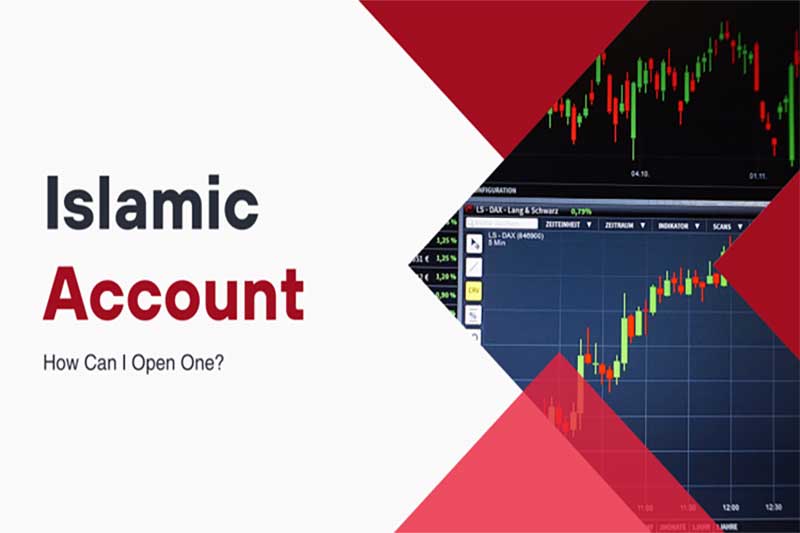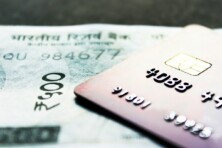If you are a Muslim who has an interest in forex trading, then you must be aware of the interest element in the currency market, and hence you may be questioning yourself if becoming a forex trader would be the right course of action for a believer. The application of interest in the form of swap rates will make forex trading Haram (prohibited) for a Muslim trader. However, forex brokers are constantly working towards expanding their client base, and for that, they have to cater to the needs of all types of traders, including Muslim traders. So, they have come up with this specialised account type called ‘Islamic account’ with the intention of incorporating the Halal way of trading into their platform, making it a practical option for Muslim traders.

But what exactly is an Islamic account in forex? and how can you open one? Today, we are going to answer all such questions so that you can easily tap into Halal trading.
Purpose of Islamic Forex account
The core purpose of an Islamic forex account is to remove all the aspects of currency trading which go against Islamic ethics and morals. Islamic accounts are different from regular trading accounts in many ways. But one of the most notable differences is the absence of swap charges which removes the interest element from forex trading. Before the introduction of Islamic accounts, the only way for Muslim traders to engage in Halal forex trading was not to keep any trade position overnight.
Because overnight positions always result in a positive or negative swap which is either earned or paid by the trader depending on the currency being traded as well as the type of position opened. Hence, Muslim traders had to limit their trading activities to scalping or intra-day basis, and they were unable to explore long-term strategies like swing trading and position trading. But the launch of Islamic accounts opened up all the closed doors for Muslim traders as they can hold onto a trade for a longer duration without worrying about swaps.
In addition to this, an Islamic forex broker ensures that the swap-free account provided for Muslim traders is also operating in a Shariah-compliant way to stay true to the principles of Islamic finance during the actual trading process. The trading conditions you get in an Islamic forex account are more specific and intended to support Halal forex trading in the best possible manner. By engaging in Halal trading, you still get equal opportunities in the realm of currency trading, and this type of account allows you to fit in with the rest of the traders’ community with greater ease.
How to Engage in Halal Forex Trading – Key Principles
In order to engage in Halal forex trading, you must follow a strategy that aligns with the principles of Islamic finance. These principles can also be taken as the 4 golden rules that you should follow for forex trading as a Muslim trader. An Islamic trading account will encourage trading practices that confirm these principles, but you should also do your part to refrain from doing anything that is prohibited in Islam.
- Removing Riba (interest or swap) from all dealings.
- Ensure spot transactions for every trade.
- Avoiding any type of mindless speculation/ gambling.
- Risks and Rewards should be shared equally.
Steps to Get Started With Halal Forex Trading With an Islamic Forex Account
- Finding a Halal Forex Broker – The first step to getting started with Halal trading is finding a reputed forex broker offering Halal trading conditions through their Shariah-compliant Islamic trading accounts or Swap-free accounts. There are quite a few options that you can consider, and the process of choosing your broker must be completed after comparing the trading conditions provided, the broker’s pricing structure and reviews on their services. A vast majority of traders tend to opt for a regulated broker as it gives a sense of safety while trading.
- Signing Up for an Islamic Account – Most Islamic forex brokers allow you to sign up for an Islamic account right away when you have the required documents to prove your identity as a Muslim. The rest of the account opening process is pretty much the same as opening a regular trading account, including the online KYC procedure and identity verification. Sometimes the broker has a system where you open a regular account, and after that, you are given a swap-free status to get started with Halal trading.
Does the Islamic Trading Account Charge Extra for Trading?
The swap fees that one pays or earns during a trade are actually the cost of keeping the trade running. But in Islamic trading accounts, swap charges are inapplicable, and the broker has to compensate for the loss by charging a predetermined admin fee instead. Most brokers allow you to keep overnight trade positions for 2-3 days without any extra charges, as the swap is not significant for such a short duration. After that, you may be charged with the admin fee, which varies depending on the currency pair chosen.
Some brokers may also add a markup on spreads or commission on Islamic trading accounts, but you can also find brokers who provide the very same pricing that is offered to a regular trader without any changes. Choosing a cost-effective broker allows you to keep the cost of trading to a minimum and save yourself from paying hefty fees for trading in the Islamic account. You can also minimise the cost to a great extent by trading with the major pairs, as it results in the lowest spreads and admin fees when you open overnight positions. It is always better to try out a broker on a demo account to check the trading conditions and other features before going live because this will give you a better idea about their efficiency and shortcomings.
Is Forex Trading Haram? Is It Really Possible to Become a Forex Trader in a Halal Way?
Referring to the Qur’an, which is the holy book of Islam, there is a saying that ‘God has permitted trading and forbidden Usury (Riba). It means trading is permissible unless no Riba or interest is involved in the transactions. It becomes forbidden when there is interest, and elimination of interest is a must for Hala trading. Hence, trading, in general, is not Haram for Muslim traders as long as it does not involve anything that is forbidden as per Shariah law.
However, Muslim traders also need to educate themselves about various principles of Islamic finance and work on their strategy to make it fit well with the religious rules so that they don’t break the rules unintentionally. Financial transactions that have an element of uncertainty are not encouraged in Islam, and hence Muslim traders need to focus on risk management and stick to their plan to limit their exposure to market risk.
What You Can’t Trade in an Islamic Account?
Usually, you can trade all standard trading instruments available on the broker platform in an Islamic account with ease. But futures or bonds will not be tradable in an Islamic account as these assets will go against the principles set by Islamic finance. Other than this, you will get to trade CFDs on various asset classes, but the choice of currency pairs will be lesser for a Muslim trader as Islamic accounts tend to remove the risky pairs (exotic pairs) to ensure Halal trading without excess risk.
Benefits of Trading on Islamic Accounts
- Accessibility – Islamic accounts are making the currency market more and more accessible to Muslim traders by giving them equal opportunities to profit with the very same functionality as conventional trading accounts.
- Perfect for Halal trading – Islamic accounts are a perfect choice for Muslim traders who wish to engage in Halal trading as they operate in a Shariah-compliant manner to eliminate all the prohibited elements from currency trading.
- No Swap – Islamic accounts are swap-free accounts, which allow you to trade freely without worrying about the rollover fees for overnight trade positions. So, you can save the time and effort that goes into swap calculations.
- Chance to explore long-term strategies – Previously, Muslim traders were unable to explore long-term strategies due to the application of swap rates. But on Islamic accounts, you are free to follow any strategy while trading with swap-free.
Limitations of Islamic Accounts
- Not all brokers offer Islamic accounts, which limits your options for this account type.
- There are restrictions on trading certain currency pairs like exotic pairs.
- Strategies like carry trading, cannot be followed.
- You will be charged for trades that are kept open for a number of days.
Final Verdict – Should you Open an Islamic Account?
Our final verdict for an Islamic trading account is positive as this account type is ideal for any Muslim trader who wishes to explore the forex market in a Halal way. This specific account type also promotes fairness and transparency in trading, making the volatile currency market a safer space for all traders. Thus, opening an Islamic forex account allows you to experience trading without losing touch with your religious beliefs and spirituality as a Muslim.









